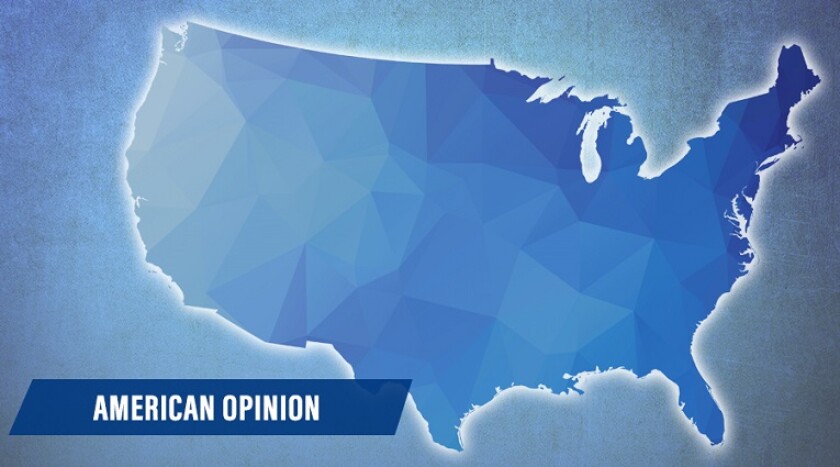The middlemen that comprise a growing share of America’s convoluted health care system find themselves in a bind. The public is angry about the inflated costs and opaque dealings that govern their access to medical care. Lawmakers, despite recent setbacks, are eager to respond. Intermediaries have become an obvious target for blame and reform.
A sharper focus on the role middlemen play in health care is justified. But faulting them for the nation’s dismal outcomes fails to address the system’s larger dysfunction: employer-sponsored health insurance.
In the earliest days of American medicine, health care was a straightforward exchange between patients and doctors. Treatments were cheap but unsophisticated. By the early 20th century, costlier, more effective medications became more widespread. The modern health-insurance industry, which sought to protect patients from large outlays, took off in the 1920s.
The odd coupling of health insurance with employment began during World War II. Fearful of inflation, the government prohibited companies from raising salaries to compete for scarce workers. Businesses found a workaround — in health benefits — and Congress ultimately made employer contributions to care tax-free. By 1955, the share of the population with insurance rose sixfold. Today, more than half of Americans have coverage through their employers.
ADVERTISEMENT
Why is employer-sponsored health insurance so problematic?

First, the subsidy is poorly designed. By exempting employer-paid premiums from federal income and payroll taxes, the law delivers outsized benefits to the rich. For example, the exclusion of a $25,000 premium — average for family coverage — is worth $9,250 to workers in the 37% income bracket and $2,500 for those at 10%. Officials estimate that 88% of the benefit of the exclusion goes to households with above-median incomes, at a cost of $300 billion a year. It’s been called the most expensive tax break in federal law.
Second, consumers are twice removed from prices. Economists have long recognized that insurance inflates the cost of covered services because consumers have less incentive to shop for the best deal. Employers add another wedge: Not only are workers insulated from prices, but they also don’t select the insurance plans best suited to their needs. In theory, employers are well-equipped to comparison-shop on their behalf; in practice, they’re making choices with other people’s money. Fearful of disruption, employers tend to move in lockstep on benefits offerings and, as government reports have found, aren’t the most prudent stewards of employees’ forgone wages. Many businesses are so bewildered by benefits selection that they engage consultants and other middlemen to help.
Finally, absent a single government payer, third parties are also needed to aggregate bargaining power. Pharmacy benefit managers — which negotiate discounts for medicines on behalf of plan sponsors — are one example. Dozens of other intermediaries speckle the market, insurers chief among them. None has leverage comparable to a government buyer and each adds a baffling degree of cost and complexity that necessitates still more middlemen.
Improving this system is the stated goal of nearly every US politician. Yet replacing the employer tax exemption with something less disruptive — such as a flat tax credit that can be used to offset the cost of an individual plan — has long been politically fraught. Perhaps that’s changing as the Affordable Care Act habituates more Americans to shopping for their own health plans. For policymakers, the key is to start small: Phasing out the tax exclusion for the wealthiest is one example. Expanded access to tax-advantaged accounts and measures that reward beneficiaries who select lower-cost services with direct savings would also help. The goal should be narrowing the gap between consumers and their spending.
ADVERTISEMENT
Americans have grown used to employer-sponsored care. But it’s a significant contributor to the system’s maddening costs and complexities. The sooner lawmakers accept this fact, the sooner the country can move on to something cheaper, better and saner.
This American Opinion editorial is the view of the Bloomberg Opinion Editorial Board. Send feedback to: opinion@wctrib.com.
©2025 Bloomberg L.P. Visit bloomberg.com/opinion. Distributed by Tribune Content Agency, LLC.
______________________________________________________
This story was written by one of our partner news agencies. Forum Communications Company uses content from agencies such as Reuters, Kaiser Health News, Tribune News Service and others to provide a wider range of news to our readers. Learn more about the news services FCC uses here.





















